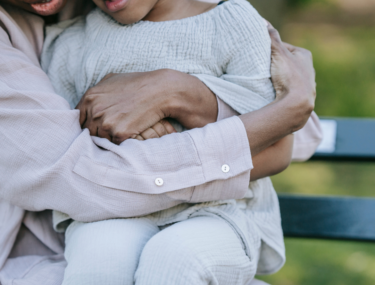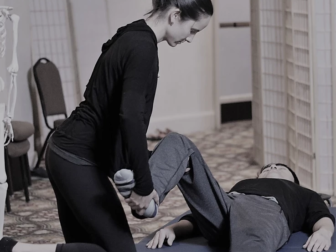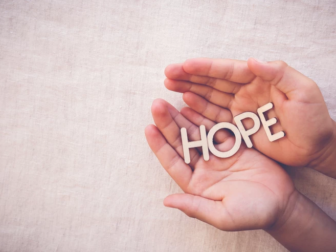In this month's blog post I wanted to take a moment to acknowledge parents for their continuous efforts learning to connect differently along with the high level of care you offer your children. In this 2 part blog series I will focus on navigating disconnection with our children, the power of forgiveness, understanding and compassion during times when our relationships feel strained.
As a parenting coach and neurobehavioral facilitator, my purpose is assisting families, caregivers and educators in better understanding special needs children and strengthening the caregiver-child relationship. I am committed to the discovery of the child’s spirit. I support parents in exploring triggers in their children that they may not see or be able to express. I like to say that we look “under the blankets” of the child’s behaviors, (including shutdown or refusal), and big emotions. Together we uncover values, expectations vs abilities, judgements, environmental obstacles and their impacts on the child. I assist many families in discovering and fostering their neuro-unique child’s strengths, gifts, interests, brain development, nervous system, and fostering safe, loving, consistent connections. Our sessions also focus on caring for ourselves, especially during times of difficulty or while processing emotions like guilt, shame, or grief. I too have walked this path with my own child that continues to unfold, gifting me with life lessons and learning how to be in a parent/child relationship DIFFERENTLY.
Do you, or your partner, struggle to connect with your exceptional child? For many parents this is a pain point, and, aside from behavioral challenges, a reason to seek out support. This is also a big contributor for parents feeling stress and grief. Many parents report experiencing a sense of loss in the relationship they thought they would have had with their child. The good news is that you CAN have a beautiful relationship with your child, it just may take some forgiveness, openness to new ways of seeing things, curiosity, and self-awareness. It may take letting go of the traditional idea of what a parent and child relationship typically looks like.
This issue of feeling disconnection touches closely on my own heart strings. When my daughter, Reese, was 6, her father and I separated. I knew this was going to be difficult for my child but did not anticipate how this might affect our closeness, our relationship. As a cosleeping, babywearing stay at home mom, playmate, and taking on the role of her therapist, (as many of us become after attending so many therapy sessions for our children!), I never thought it could be possible for her to not want to connect with me, as her Mom. During the separation, there was a long 2 years in between the time my daughter would hug me again. It was heartbreaking for me. I missed my child. I longed to hold her closely. Reese had decided that her relationship with her Dad was of most importance after the separation. As much as I understood this relationship was new and exciting, (she had never had him all to herself before and they were doing many new activities together), it did not make it easier on my Mommy heart.. Reese is also a child who really struggles with transitions. Parenting with compassion and presence for both of us has been my mountain to climb. It has been so difficult to witness my child experience emotional pain over time lost with her Dad, the meltdowns at drop offs followed by being depressed and uninterested in our relationship. If we were all in one space this may have been easier and alleviated by his presence. My child was so sad without her Dad. Because getting back together and her living with her father fulltime was not an option, I wanted to understand what was happening for my child, how to help her process the separation and how to support us both. This has been one of the big reasons I have been so driven to become so educated in connected parenting, especially with a focus on brain-based conditions. Navigating divorce with a special needs child takes a different level of knowledge about your child. With the divorce rate so high in families with additional/special needs, I really felt like it was important to share my experience and shine a light on it. If your family is intact and one of you is feeling less bonded with your child, which happens often, I hope you too may find these insights just as helpful.
So, what can you do when you feel you lack the ability to connect with your neuro-unique child?
How can you keep your hearts open if you are feeling great loss in your relationship with your child, despite your greatest efforts?
How can you be anchored in unconditional love no matter what happens or how your children behave towards you or others?
Well, This is why they make our kids SO cute! I’m kidding. This is what makes our parenting relationship our ultimate life transformer and teacher. The relationship with our children is one we stay with no matter the struggles. Unlike other relationships, we may choose to abandon ship when the waters are too rough, but with our kids, We are here to stay; evolving in our practice of unconditionally loving ourselves and our children along the way. This relationship expands us.
When we struggle with connection with our neuro-unique kids, we have to think globally about our kids and their experience. This is why I have decided to make this blog post a 2 part series. Here in part 1, we focus on ourselves and our role in the relationship with our child.
Here is an inquiry you can JOURNAL with to gain self awareness on how you may be contributing to the disconnection.
In self-Inquiry exercise, begin by bringing awareness to your own thoughts and energy, the intention is to always be curious and not judgemental with yourself, like a kind, neutral observer.
Next, ask yourself:
If my child could hear my thoughts, what would they hear?
How would they feel?
Am I present, showing a willingness to engage as slowly as they need or am I rushing or distracted?
What is my attitude towards them?
Often, even without the words, our children can feel our attitudes and what we are thinking about them or ourselves through our body language, facial expressions and energy. Our energy, life pace, face and body language all contribute to co-regulation or deregulation with our sensitive kids. They are always attuned to us. In order to connect, our children need to be regulated, as do we! So take good care of yourself, learn to regulate yourself by leaning into relaxing activities and mindfulness practices. Then do your best to slow down, stay present and open to your child’s BEING state and you will see them feeling more safe to engage and open up to you.
Next, practice forgiveness. Yes, you heard me forgiveness. There is so much power in learning to forgive ourselves and our children. By forgiving our children we also learn to forgive ourselves because all forgiveness is essentially self-forgiveness. So if you feel even a hair of resentment towards your child or the situation you are in, I cannot recommend working on this enough. By releasing this emotional burden we free up space for new insights and possibilities in our relationship and have a renewed sense of vital life force. Our children are not our enemies. They are just children learning to be in this world with different needs.
The forgiveness inquiry begins by asking yourself the following questions:
Do I feel like I need to forgive my child?
What is the story I am telling myself about them and this situation?
What is the story I am telling myself about my role and our relationship?
Can you see how this relationship with your child is growing you as a human being?
Can you see how they are here to heal you?
Do I now need to forgive myself? Why? Can I see how I was doing my best with what I knew at the time?
Next write down the statement, “I…..Forgive myself for ……knowing I was doing my best with what I knew before. I now choose to ……..
Pretty simple right? And it’s effective.
In the book Radical Forgiveness, by Collin Tipping, he describes a paradigm shift in forgiving by recognizing that our souls are here in service to expand one another through contrasting experiences of discomfort and separation so we learn to return to loving oneness. Even if you are not a spiritual believer, we cannot deny that our children are making us better people. Perhaps they are bringing you home to your true nature, love. Perhaps they are helping you to learn compassion, nonjudgement, presence or what is truly important in life.
Forgiving my daughter for the never-ending sleepless nights, grief and frustrations I have experienced has shifted the way I see us as a family. I am now looking at how this relationship has grown and has been freeing and healing. When my daughter was experiencing refusal to come home after a trip with her father recently, I cried, because I missed my child, and then I took a compassion-filled look at the story I was telling myself about our relationship. I saw how this was mirroring my feeling of abandonment as a child. This became an opportunity to love and comfort myself for those hard times. In addition, I had to practice forgiving myself and my child and shift to begin seeing her as my healer. I had been so hurt, however, without her, I would not have released these old emotions that were still stored in my being. I had the opportunity to reparent and free myself. Interestingly, after I did this, she was ok with coming home to me. We are all so interconnected, always. My child continues to be the one who helps me most transform.
If you would like a more indepth support in your forgiveness process I would highly suggest the book: Radical Forgiveness by Colin Tipping. You can purchase the book here: (https://www.amazon.ca/Radical-Forgiveness-Revolutionary-Five-Stage-Relationships/dp/1591797640 ).
You may additionally want to consider working with myself, one of our coaches at Evolve Movement: https://evolvemovement.ca/, or another trusted therapist or coach. Help is always on the way.
Dear parents, we are all always doing our best with where we are at every given moment. Acknowledge your efforts. Continue to care for yourself with compassion. There are many gifts we receive on this soul-led expedition with our exceptional, unconventional kids. We have been granted moments to discover how much the human heart can hold. Because of this, I am grateful;
Grateful to release all traditional ideas of parenting.
Grateful we are learning to be less judgemental and more curious.
Grateful we to learn deep forgiveness.
Grateful for our expanded compassion and humanity.
Grateful we see our relationship with our child as formless. This is a soul led journey together.
Grateful for grace and surrender, learning to let go and trust in the goodness of life itself.
Grateful that we are becoming more present and clear in life daily.
Grateful for this opportunity to become more unconditional love.
Aftereall, this is why we are here.
***Next up in Part 2 of Navigating Disconnect with Special Needs Children, we will focus on exploring the child’s experience of disconnection through a Neurobehavioral lens.***





